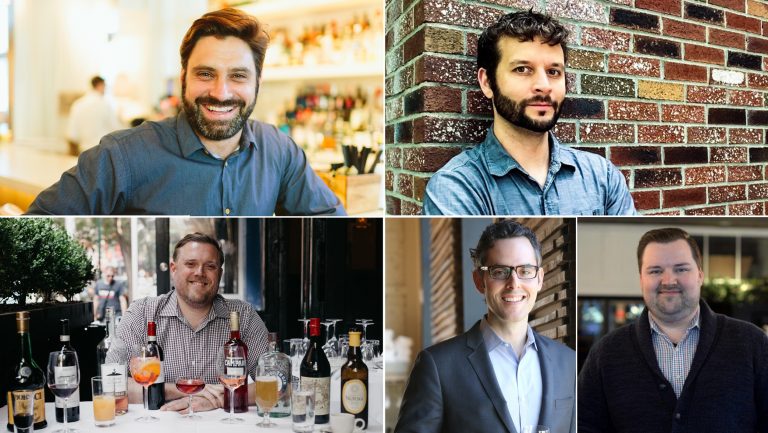As enjoyable as it is to sling bottles and chat with guests, most sommeliers crave the opportunity to run a wine program. But being a wine director isn’t just about buying excellent wines to craft a unique and attractive list. There are added management responsibilities and financial considerations that come with leading a wine program, and they require the wine director to essentially run a business within a business. To better understand how to get a foot in the door and ultimately land one of these coveted positions, SevenFifty Daily spoke with some of the country’s most seasoned wine and beverage directors about what aspiring somms need to know.
1. Expect to put in just as much—if not more—work
“Often, folks new to the industry perceive the position of wine director as quite the glamorous role,” says Eduardo Porto Carreiro, the beverage director of Ford Fry Restaurants in Atlanta. Although it may seem as if a wine director position would be a great way to get away from grueling floor hours, the day-to-day responsibilities are numerous, from sitting in on operations meetings to scrupulously editing the wine list. Much of the wine director’s role focuses on planning for a seamless and successful service before guests walk in the door.
2. Maintain a team mentality
Jenni Guizio, Union Square Hospitality Group’s associate director of wine, looks for several qualities when hiring a first-time wine director, but she believes that a desire to lead, teach, and inspire others is essential. “Always put your team first,” Guizio advises. “Their growth and success will determine yours.” That includes not only the members of the wine team but servers, bartenders, and back-of-house staff as well. The team-forward mentality is important regardless of restaurant size, as Lettuce Entertain You’s divisional wine director, Ryan Arnold, attests. Arnold, who oversees more than a dozen Chicago wine lists, says, “It’s important to carve out relationships with the team of each restaurant in order to ensure that everyone feels taken care of.”

Don’t miss the latest drinks industry news and insights. Sign up for our award-winning newsletters and get insider intel, resources, and trends delivered to your inbox every week.
3. Know your tech
If aspiring wine directors should know one computer program thoroughly, it is Excel. Many restaurants use Excel spreadsheets for both budgeting and inventory management, so at times this program can be more essential even than wine textbooks. “A facility for inputting invoices is just as important as a grasp on the quality of the recent vintages in Chablis,” Porto Carreiro notes. An understanding of point-of-sale systems and reservations software can also help prepare a sommelier to be a wine director. Guizio suggests that sommeliers ask their managers to give members of the wine team access to systems currently being used so they can become familiar with pricing, vendors, and logistics.
4. Understand the numbers
A profitable wine program is a successful one, so it’s helpful to have an understanding of a beverage program’s financials. Even if the average sommelier is not typically involved in budgeting and financial analysis, there are plenty of resources online—including SevenFifty Daily and GuildSomm—that can help explain profit and loss statements and how to optimize the cost of goods sold. “Know budgeting and financial analysis—the math of our business and what’s behind those numbers,” says Jeff Porter, the director of liquid assets for the Bastianich Hospitality Group. “Understanding concepts like percentage cost, cash flow, burn rate, and turnover will put you ahead of many of your colleagues.”

5. If you want to learn, speak up
Because wine directors have so many responsibilities, some might assume that they don’t have the time to train sommeliers in skills that are not essential to floor positions. On the contrary, Porter says, this is “the goal for any aspiring wine director—to want to create other wine directors.” While simply offering to take a few tasks off a wine director’s plate can lead to a sommelier’s learning valuable new skills, it will also benefit the overall wine program. “Nine out of 10 wine directors need help,” Porto Carreiro notes, “and the more you show yourself to be interested in growing and taking the next step, the more responsibility you will be given.”
6. Learn from importers and distributors
Seasoned wine directors can provide valuable insight and mentorship, but so too can other wine professionals. “Identify, listen, and learn from the qualified people on the distribution end of the business,” says Chris Graeff, the wine director of Lumière in Newton, Massachusetts. “They can teach you a lot, and you can learn good sales techniques as well.” Relationships with vendors are crucial in a wine-buying role, so a better understanding of their work helps create a well-rounded wine director. Arnold, for instance, worked at both Winebow and Vin Divino, a local Italian wine importer in Chicago, before joining the Lettuce Entertain You team in his current role. Sommeliers could also let their managers know they’d like to sit in on tastings with sales reps in order to get an idea of how the process works.
7. Hone management skills
The style of having “a beverage or wine director as a solo position is fading away,” says Andrew Rich, the beverage director of Woods Hill Table in Concord, Massachusetts. “Don’t be afraid of this, but if you have a weak foundation in management skills, take the time to work on them before [trying to] get into the role.“ Even wine directors who don’t also assume the role of general manager or assistant general manager should be confident in doing any and every management task. “The guest takes precedence,” says Porter, “and that means if we need to pour water, take an order, or clear a plate, that is equally important as talking wine or making a list.”

Dispatch
Sign up for our award-winning newsletter
Don’t miss the latest drinks industry news and insights—delivered to your inbox every week.
Courtney Schiessl Magrini is the editor-in-chief for SevenFifty Daily and the Beverage Media Group publications. Based in Brooklyn, she has held sommelier positions at some of New York’s top restaurants, including Marta, Dirty French, and Terroir, and her work has appeared in Wine Enthusiast, GuildSomm, Forbes.com, VinePair, EatingWell Magazine, and more. She holds the WSET Diploma in Wines. Follow her on Instagram at @takeittocourt.







